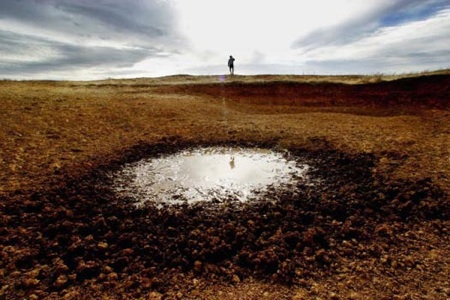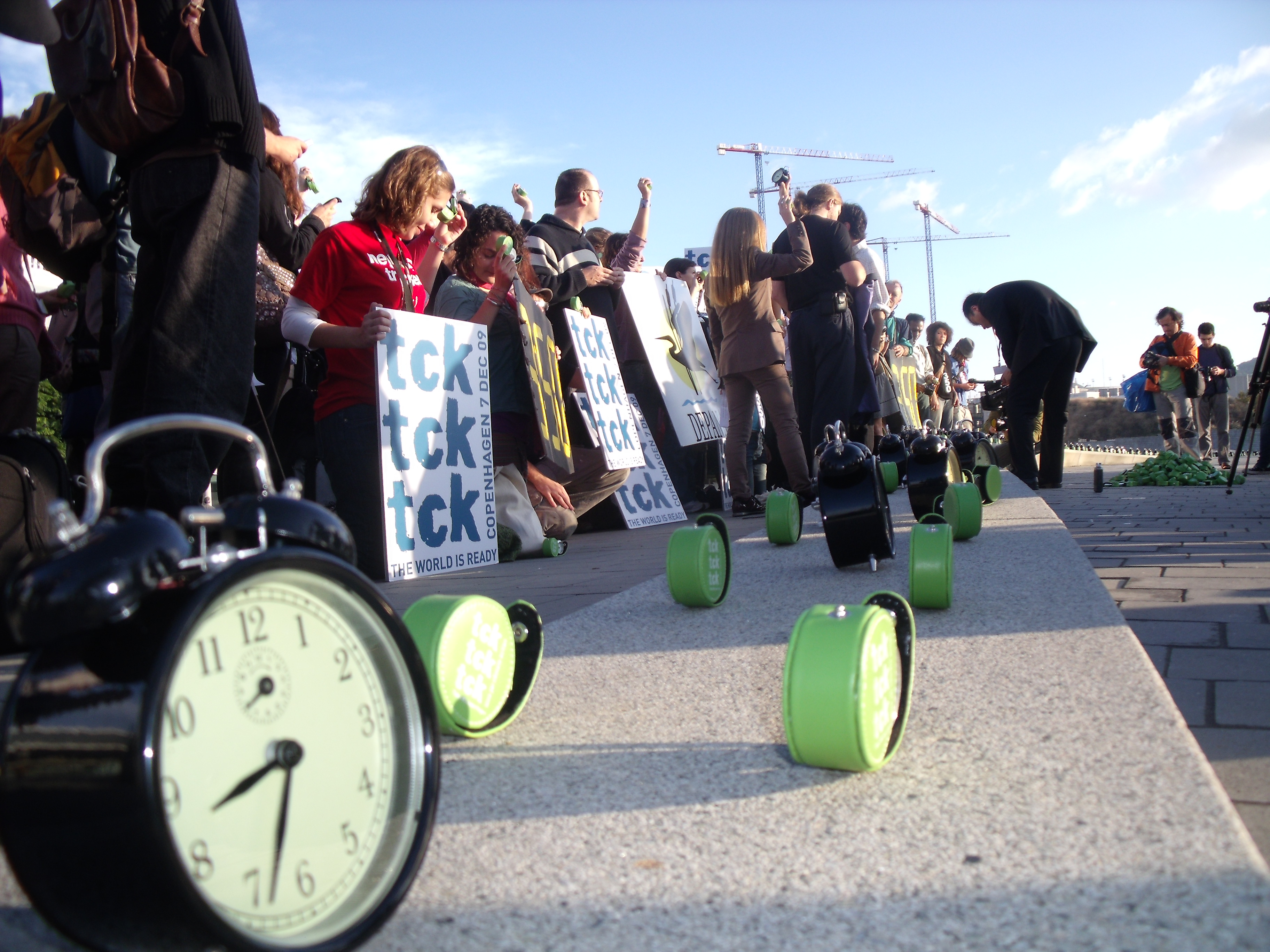
Monday, in the parlance of Washington policy and journalism, was scheduled to be a potential day of breakthrough in the work to achieve action on the warming climate. Senators John Kerry (Mass.), Lindsey Graham (S.C.) and Joe Lieberman (Conn.) had announced that they’d come to consensus on what a bipartisan energy and climate policy fit for the 21st century looked like. The results were to be unveiled at a news briefing that had global import.
Instead nothing happened. It was like reeling in a sailfish, all fight and silvery splash, only to have the beast die on the way into the boat.
This is the third time in five months that that I’ve been involved in climate and clean energy campaigns that culminated in less than they promised. “Just say no” is emerging as a far easier answer than saying yes to progress.
In Copenhagen in December, nearly 200 nations gathered at the largest summit ever with the express purpose of reaching agreement on a climate treaty. Instead what they came up with was a novel accord that points in the right direction and may not achieve more than that.
In Traverse City, a small utility’s bid to acquire 30 percent of its energy from local renewable resources, including a state-of-the-art clean right-sized clean burning 10 mw wood biomass plant, generated such fierce hyperbole about unfounded risks among some environmentalists that you’d have thought the utility was proposing a 100-acre toxic waste site for the middle of town. The local push back, led by a grassroots environmental group, is consistent with similar resistance in 30 other states to proposals for new wind, solar, geothermal, wood biomass, and transmission lines. This week, Interior Secretary Ken Salazar is expected to decide on a big offshore wind farm in Massachusetts that has been the focus on a popular opposition campaign. The clean energy transition may not be televised.
Now comes the Senate’s attempt to push through a climate and energy bill, which over the weekend got washed up on the shoals of partisanship, immigration policy, Senate Majority Leader Harry Reid’s re-election, and the powerful climate change-denying communications machine operated by America’s fossil fuel collective.
Today, Senator Reid retreated just a bit and sought to assure his Democratic and Republican colleagues that debate on the climate and energy bill would come before debate on the immigration bill. That makes sense since there is no immigration bill to debate in the Senate. But Graham, a very lonely Republican in the climate and clean energy space, has not yet indicated whether he’s ready to participate in introducing the ready-to-go energy bill that he’s spent months shaping with Senators Kerry and Lieberman.
The politics of stasis — of doing nothing — is brought action on climate change to a crawl, and that may be kind. The public will to act, to reduce emissions of carbon, to provide for the safety of the planet and all its inhabitants, is just not apparent in the United States, or in much of the rest of the developed world.
Clearly, a new operating program is needed politically and a new communications frame and strategy needs to be developed. Today the Environmental Protection Agency made public a new report on climate change effects that are getting worse:
- Greenhouse gas emissions from human activities are increasing. Between 1990 and 2008, there has been about a 14 percent increase in emissions in the United States.
- Average temperatures are rising. Seven of the top 10 warmest years on record for the continental United States have occurred since 1990.
- Tropical cyclone intensity has increased in recent decades. Six of the 10 most active hurricane seasons have occurred since the mid-1990s.
- Sea levels are rising. From 1993 to 2008, sea level rose twice as fast as the long-term trend.
- Glaciers are melting. Loss of glacier volume appears to have accelerated over the last decade.
- The frequency of heat waves has risen steadily since the 1960s. The percentage of the U.S. population impacted by heat waves has also increased.
Still, people in the United States aren’t much concerned. They are clearly indicating, in grassroots fights and in support for lawmakers who counsel to do nothing, that they are satisfied with the way things are. That is a dangerous sentiment in an unsettled world making powerful and swift transitions in every important sector — the economy, markets, the environment, energy, population, and competition for resources.
— Keith Schneider

